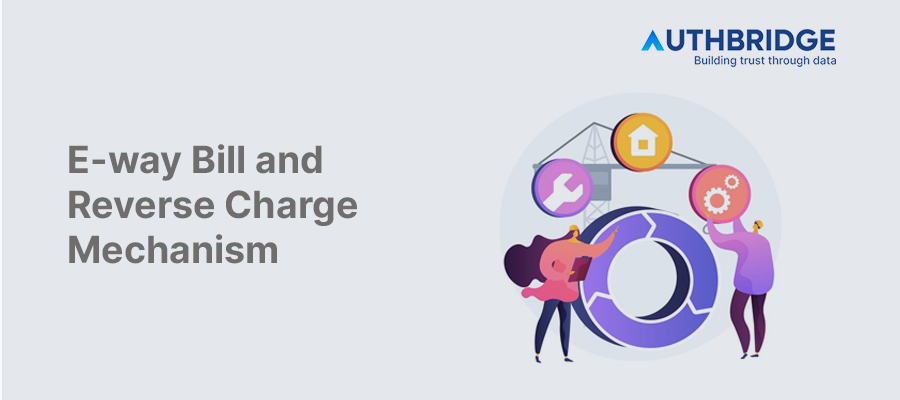A Comprehensive Guide To Compliance And Best Practices

The Reverse Charge Mechanism (RCM) under GST shifts the responsibility of tax payment from the supplier to the recipient of goods or services. This mechanism is primarily applied in cases where the supplier is not registered under GST or falls within specific categories defined by the government.
Applicability and Scope
RCM is applicable in various scenarios, including but not limited to:
- Services provided by an e-commerce operator
- Supply of certain goods and services by an unregistered dealer to a registered dealer
- Specific supplies as notified by the Central Board of Indirect Taxes and Customs (CBIC)
E-way Bill Overview
Definition and Purpose
An E-way Bill is an electronic document generated on the E-way Bill Portal, evidencing the movement of goods worth more than Rs 50,000. It is a compliance mechanism to ensure goods being transported comply with the GST Law.
Requirements for Generation
The generation of an E-way Bill is mandatory for:
- Interstate and intrastate transportation of goods exceeding the specified value threshold
- Specific transactions, including returns and transfers, irrespective of the value in certain cases
Interplay between E-way Bill and RCM
E-way Bill Requirements under RCM
In the context of RCM, the generation of E-way Bills remains a requirement for the transportation of goods. However, the responsibility may shift based on the transaction's nature and the parties involved.
Reporting and Compliance
Both the supplier (if registered) and the recipient need to ensure compliance with E-way Bill regulations under RCM transactions. This includes accurate reporting and record-keeping for audit and verification purposes.
E-Invoicing and RCM Transactions
Applicability of E-Invoicing to RCM
E-Invoicing under GST has been implemented to automate and streamline the reporting of B2B transactions. For transactions under the Reverse Charge Mechanism (RCM), the applicability of e-invoicing depends on the turnover of the business and the nature of the transaction. Businesses that meet the e-invoicing turnover threshold are required to generate e-invoices for RCM transactions, ensuring that these transactions are reported accurately in their GST filings.
Generating E-Invoices for RCM Transactions
For RCM transactions, the recipient of the goods or services (who is liable to pay GST under RCM) is responsible for generating the e-invoice if they meet the prescribed turnover criteria. This includes obtaining an Invoice Reference Number (IRN) from the Invoice Registration Portal (IRP) and ensuring that the e-invoice reflects the reverse charge applicability.
Practical Scenarios and Compliance
Supplier under RCM without GSTIN
- Scenario: A supplier is not registered under GST and provides services to a registered recipient.
- Compliance: The recipient, being liable under RCM, must generate invoices and e-invoices if applicable, ensuring compliance with e-invoicing requirements.
E-commerce Operators and RCM
- Scenario: E-commerce operators providing taxable services are liable to pay GST under RCM.
- Compliance: E-commerce operators must generate e-invoices for B2B transactions if they meet the e-invoicing criteria, including the generation of IRNs.
Supplies Notified under RCM
- Scenario: Certain goods and services notified by the CBIC are subject to GST under RCM.
- Compliance: Suppliers of these goods and services must generate e-invoices if they fall within the e-invoicing turnover threshold, indicating the reverse charge applicability.
Challenges and Solutions
Compliance Challenges for Businesses
Businesses may face challenges in identifying transactions subject to RCM and ensuring accurate e-invoicing. This includes understanding the specific conditions under which RCM applies and the technical requirements for generating e-invoices.
Technological Solutions and Best Practices
Leveraging integrated GST software solutions can help businesses automate the identification of RCM transactions and the generation of compliant e-invoices. Regular training and updates on GST regulations for the finance and accounting teams are also crucial.
FAQs and Troubleshooting
Common Questions on E-way Bill and RCM
- Q: Is an E-way Bill required for all RCM transactions?
- A: Yes, if the value of goods exceeds Rs 50,000 and the transaction involves the movement of goods.
- Q: Can e-invoices be generated for RCM transactions by the recipient?
- A: Yes, recipients liable to pay GST under RCM and meeting the e-invoicing criteria must generate e-invoices.
Troubleshooting Tips
- Issue: Difficulty in generating e-invoices for RCM transactions.
- Solution: Ensure that the GST software is updated to handle RCM transactions and consult with a GST expert if necessary.
Conclusion
Understanding the interplay between the E-way Bill system and the Reverse Charge Mechanism, along with the applicability of e-invoicing, is crucial for GST compliance. Businesses must stay informed about the latest GST regulations and leverage technology to streamline compliance processes. By addressing the challenges and adhering to best practices, businesses can ensure accurate reporting and minimize the risk of non-compliance.
Category

Abhinandan Banerjee
(Associate Manager - Marketing)
Abhinandan is a dynamic Product and Content Marketer, boasting over seven years of experience in crafting impactful marketing strategies across diverse environments. Known for his strategic insights, he propels digital growth and boosts brand visibility by transforming complex ideas into compelling content that inspires action.



